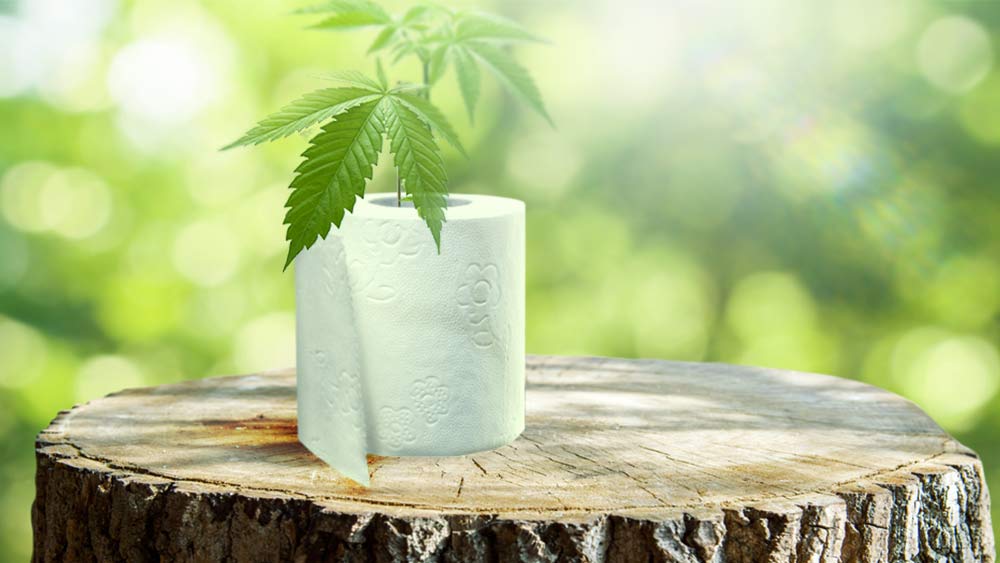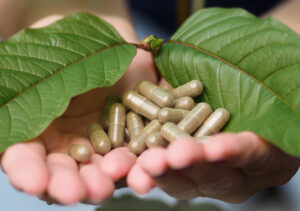After the COVID-infused spike, the demand for toilet paper is hopefully back to its rational limits. Perhaps now is the time to talk about alternatives – hemp!
The most frequent question the NRDC (The Natural Resources Defense Council) received after publishing the report on the devastating effects of toilet paper consumption on the boreal forest was the one about alternatives to trees for toilet paper production.
Because, apparently, we are literally “flushing away the Canadian boreal forest”.
The NRDC cautioned all hemp enthusiasts that they needed to make sure the plant “is sourced sustainably, without impacting forests”.
They also noted that there are no hemp-based tissue brands yet, but that “hemp does seem to be a promising alternative to the far more destructive paradigm of relying on trees for our throwaway tissue.”
Now, this was all long ago, in the pre-COVID era. After we’ve witnessed the frantic stockpiling of toilet rolls, should our conversation have a more urgent tone?
Where Are All the Hemp Toilet Paper Brands?
There are two names in the hemp toilet paper business niche – HempSoSoft and Hempies.
Unfortunately, they are nowhere to be seen or found. HempSoSoft doesn’t even have a website anymore, while Hempies has been promising a “soon launch” for at least six months now.
On the bright side, as Hemp Industry Daily recently announced, Georgia-Pacific, a giant in the paper-manufacturing industry, is partnering with a Canadian firm that uses hemp-based fibers for a variety of nonwoven products, such as makeup removers, baby wipes, and moist toilet tissue.
The Bast Fibre Technologies’ CEO’s words are worth mentioning:
“COVID has dramatically increased the number of cleaning wipes people are using. We’re seeing a lot more disposable cleaning wipes being used in all sorts of facilities. Now everyone is saying that this demand change will be permanent, that this is sort of a step-change in demand for nonwoven cleaning wipes, and today the vast majority of them are synthetic,” he explained to Hemp Industry Daily, adding:
“That is really the opportunity for hemp fiber to come in and be, I think, a more natural, better-performing fiber that is also fully compliant with all of the environmental legislation that’s being introduced, not just in Europe but in China, Canada, the States, (where) it’s been done at the state level now.”
The Value of Hemp Pulp
So, what’s so special about hemp fibers and pulp? Why are enthusiasts putting three exclamation marks after its mention?
For one thing, everything that could replace virgin wood pulp without further deforestation is worthy of researching.
Second, according to the Ecological Agriculture Projects at McGill University, there are many reasons why the industry should look into hemp as a sustainable alternative.
These are their arguments.
– USDA Bulletin #404 outlined a process for the production of paper using pulp and demonstrated that hemp could replace 40% to 70% of all tree pulp paper.
– An acre of hemp will produce as much pulp for paper as 4,1 acres of trees over a 20 year period. This calculation means that using hemp for paper production could be beneficial both in economic and environmental terms.
– On top of that, the hemp paper-making process requires no dioxin-producing chlorine bleach and uses 75% to 85% less sulfur-based acid, which means that toilet paper produced in such a way can contain far fewer chemicals.
– Next, hemp paper is suitable for recycling use 7 to 8 times, compared with three times for wood pulp paper.
– And, perhaps most importantly, hemp produces the strongest, most durable natural soft-fiber on earth, which could shush all the skeptics doubting the quality of the end product.
Last, but not least, hemp grown in most parts of Canada will require no herbicide, fungicide, or insecticide applications.
Waste Game
As the NRDC’s FAQ section outlined, it’s very important to use hemp from sustainable sources. Otherwise, we could be facing further deforestation in order to obtain the land needed for biomass production.
Now, with some estimates claiming that the green industry waste can reach up to 1 million tons in a year (North America alone), the sustainable equation seems obvious.
“The two main waste streams from both hemp and cannabis are the plant waste and the packaging waste,” said Kaitlin Urso, environmental protection specialist at the Colorado Department of Public Health and Environment, to CompanyWeek. “We don’t have a good handle on quantities.”
Not all of it is suitable for further processing, of course. But a large part can be better used than being dumped in the landfill.
John Whiteside, who founded Industrial Hemp Recycling in Denver in 2011 noted that this growing mountain of biomass is becoming a marketable commodity.
“We’re actively looking for processors and investors to get involved in trying to find different back-end products you can make,” he said to CompanyWeek. “It’s a whole other world.”
Cons of Environmental Alternatives
Unfortunately, we weren’t able to find any expert opinion on hemp toilet paper, so we can only take educated guesses when it comes to downsides of the alternative.
Surely, the tissue industry finds it hard to leave the old ways behind. Perhaps it can be a costly switch.
Maybe the consumers are not ready yet to pay slightly more for alternative products. We’re guessing that’s why HempSoSoft and Hempies are taking so long to launch.
On the other hand, as one European study noted, “we have significant reasons to try and reproduce and improve this technology [the use of fiber hemp for pulp and paper].”
So, Yes to Hemp?
We use toilet paper several times a day.
Three rolls per week on average, to be precise.
It does seem like a silly thing to consider – toilet paper made of hemp, or CBD-infused “kush for your tush,” as TheGrowthOp article named it. But there’s nothing silly about the environmental benefits of its use.
According to the NRDC’s report, “much of the pulp used for making toilet paper in America comes from the boreal forest, which is home to both indigenous peoples and endangered wildlife.”
It also stores nearly twice as much carbon as the world’s oil reserves.
And over 1 million acres of boreal forest are clear cut every year, much of which simply gets flushed in our toilets.
So, hemp? Absolutely yes!!!








Joyce Picco September 1, 2020 at 8:38 pm
I would love to invest in this business! It seems very promising! A win-win for all involved.
George G September 2, 2020 at 5:33 pm
Hemp is exactly the same as trees when it comes to making paper. Except, it does not destroy forests and it grows real fast! Problem is, the paper giant companies WILL NOT let it happen. Best of luck saving the world, when others want only money
Stuart Federman October 5, 2020 at 1:12 am
i am a carpenter by trade and have seen my share of trees or lack there of as in the movie the Matrix. go to 2.09 minutes https://youtu.be/LCjhh0h7RSM I'M IN! They talk about land being use for this when you can grow Hemp hydroponics and thats just for starters
J July 14, 2021 at 8:35 pm
When it becomes cheaper to use I’ll switch. Sorry.